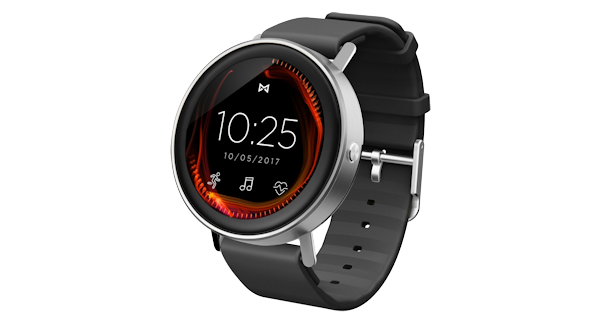Fossil to License “Advanced” Smartwatch Tech to Google
Google has agreed to pay $40 million for intellectual property “related to a smartwatch technology currently under development” by Fossil. It will also assume control of “a portion” of the research and development team working on this technology.
In a statement to Wareable, Greg McKelvey, Fossil’s executive vice president, commented: “We’ve built and advanced a technology that has the potential to improve upon our existing platform of smartwatches. Together with Google, our innovation partner, we’ll continue to unlock growth in wearables”.
Mr McKelvey revealed that this new product line is based on technology that Fossil has developed on the back of its acquisition of Misfit in 2015, a deal that saw Fossil pay a reported $260 million for the company. We note that the original Misfit Vapor smartwatch (pictured below) unveiled at CES 2017 featured a proprietary operating system that may have included some unique developments. However, just before its release, Fossil ditched Vapor OS in favour of Google’s Wear OS.
Misfit Vapor smartwatch
Source: Misfit
In our analysis of CES 2017, we noted that the Vapor platform offered features that weren’t available on Wear OS at the time, such as an interesting touch-bezel interface for navigating the menus and on-board GPS, which was only introduced on Wear OS in summer 2017. Vapor OS lacked an app ecosystem, and we think this is ultimately why Fossil opted for Wear OS. It’s also possible that Fossil came under pressure from Google to focus all its efforts on Wear OS given its importance as a partner.
It’s now clear that Fossil has continued to develop the technology pioneered by Misfit behind the scenes. We speculate that some of the key features it’s been working on could include an improved user interface, wellness features and longer battery life. As Fossil has also released smart analogue watches under the Misfit brand, it’s feasible that its R&D team has also focussed on creating innovative hybrid smartwatch technology combining full-touch and analogue watch movements, and possibly some innovative hybrid screen technology, perhaps similar to a solution showcased by Kairos in March 2015 at Mobile World Congress.
The deal further emphasizes Google’s renewed commitment to its Wear OS platform. Since the second half of 2018 the giant has stepped up its focus on wearables by releasing significant software updates and re-engaging with the Wear OS community. This announcement also heightens speculation of the much-rumoured “Pixel Watch”.
For Fossil, this development underlines its position as the leading provider of Wear OS devices. Although the agreement with Google gives the broader Wear OS ecosystem access to the new technology, Fossil will be able to launch it first, which gives it a time-to-market advantage.
Ultimately, Google’s move benefits all existing smartwatch players using Wear OS. As it tries to compete with the highly successful Apple Watch, Google will be hoping that this deal will make its platform more attractive not only to current and potential licensees, but mostly importantly to end users.


 Twitter
Twitter
 Facebook
Facebook
 LinkedIn
LinkedIn
 Email
Email